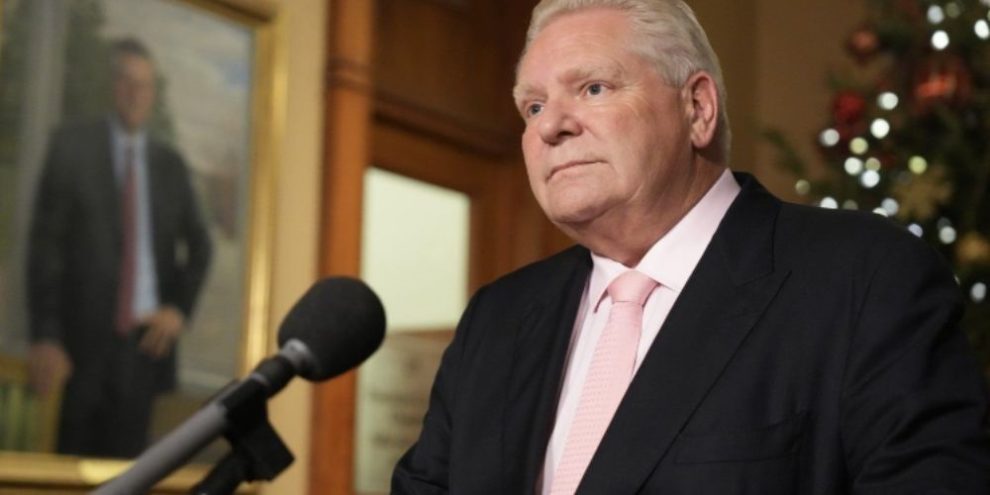
Updated December 24, 2024 @ 3:53pm
Canada's premiers are calling on the federal government to extend the deadline for claiming charitable donations on tax returns through to the end of February.
Ontario Premier Doug Ford made the request in a letter to Prime Minister Justin Trudeau on Christmas Eve, sent in his capacity as chair of the Council of the Federation.
"Charitable organizations across Canada depend on year-end fundraising to support their operations throughout the year," Ford wrote. "However, this year's efforts have been severely impacted by the Canada Post strike, which has prevented donors from making their usual holiday donations."
Charities have reported major declines in mail-in donations during what's typically their busiest time of year. They blame the Canada Post strike, which brought letter mail to a standstill for a month starting in mid-November, preventing donors from sending cheques the old-fashioned way.
The premiers are requesting that the federal government extend the deadline from the end of the year to the end of February 2025, which would allow donors to send their cheques later than usual but still get credited for the 2024 tax year.
The premiers are echoing calls from chief executives of three groups that represent Canadian charities – Cooperation Canada, Imagine Canada and the Health Charities Coalition of Canada – who co-wrote an op-ed published Monday in The Hill Times.
"The effects of the postal strike will be felt well into 2025," the groups wrote. "Extending the donations receipting period into the first quarter of 2025 is a simple and effective solution to provide immediate relief and support the charitable sector in recovering lost revenue."
The Salvation Army, which is reporting a drop of more than 50 per cent in holiday donations this year that it attributes to the strike, has also been advocating for an extension to the tax deadline.
"This is, we believe, about doing the right thing for those who need help daily. And we're grateful to the premiers for seeing the significance of this," said Lt.-Col. John Murray, a spokesman for the charity.
Murray said he's "cautiously optimistic" that the premiers adding their voice to the call could yield results, but if not, the charity will have to "thoroughly assess" the services it can offer in 2025.
The Canadian Union of Postal Workers — representing more than 55,000 members — began its job action Nov. 15 over issues that include how to deploy staff for proposed weekend delivery shifts.
The mail carriers were ordered back to work Dec. 17 when the Canada Industrial Relations Board declared the two parties were at an impasse and would be unable to reach a deal by the end of the year.
Post offices started accepting new mail two days later. But by then, time was running out for donors to send in their cheques.
Murray said mail-in appeals are particularly effective because the Army’s core donors are over the age of 55 and more likely to rely on the postal service.
Trudeau's office did not immediately respond to a request for comment.
This report by The Canadian Press was first published Dec. 24, 2024.





